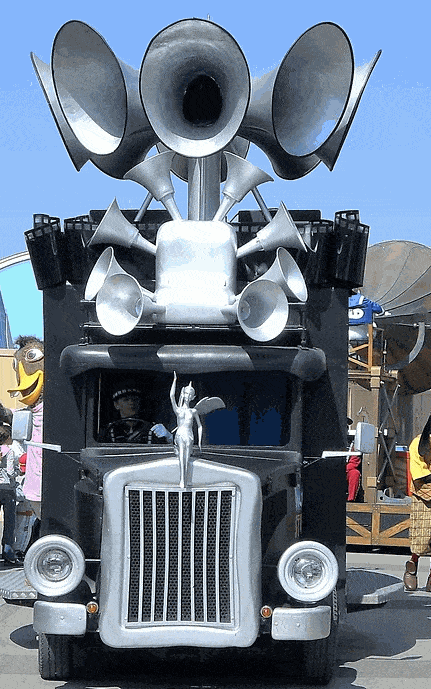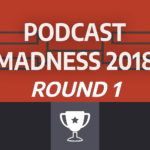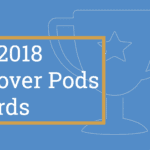Podcasting is THE Democratic Medium

Podcasts are a giant step forward for personal… not party… politics.
The growth of podcasting has come about to a large degree through the efforts of an army of individuals scattered across the globe. A large cohort is in the U.S., as often happens in modern markets, but the phenomenon is truly international. The podcast incubator bubbled and brewed for more than a decade, almost like a startup itself… but as an amorphous movement, not a singular entity.
What has emerged is a VERY INTERESTING and new communications medium.
For the uninformed, a podcast is just audio-on-demand. Or video. Either way… on-demand. Here’s how it works:
1. A person records a bit of audio or video content using their smart phone, digital camera, or fully outfitted studio.
2. The content creator, called a podcaster, makes internet links to their final content available via an “open web” method called RSS, which stands for Really Simple Syndication.
3. Using a web media player, downloaded app, or smart speaker/TV, consumers can access that syndicated audio/video content — the podcast , the show we listen to or watch — and enjoy it when convenient.
Where it once required a staff of experts, huge investments in equipment and operations, and production studios to create audio and video “shows”… any one of us can do the same today with very few resources. It’s now just as easy for an INDIVIDUAL to produce audio and video content and have it consumed by a fan located on the other side of the planet as it is for a giant MEDIA COMPANY. One could even argue EASIER, in certain respects.
Democracy is about individual voices being heard.
Whether spoken word delivered in audio-only form or words heard along with video of the speaker, the thoughts and opinions of individuals in a society have validity.
Historically, the people around a town would gather in the square to hear debates on topics… and voice their responses… participating. Literally, being heard was all one could ask of “the process”. If moved, perhaps “the people” took appropriate governing action.

Later, a few with printing presses began to distribute pamphlets expressing their views (or those of their patrons) to the public. They seized a bigger voice as the world became more modern. Successful, many traded old flatbed for new rotary presses and expanded into newspapers, multiplying their loudspeaker power again.
It became harder for the individual to be heard.
Then, it became possible to convey audio streams over-the-air via radio (followed by video and television), increasing even more the one-to-many nature of communications media. Requiring large capital investments, electronic media was beyond the reach of individuals for decades.
Radio and TV also spoke with such a loud voice that the individual found it, once again, more difficult to be heard. At the same time mass media devolved into appealing to the masses, thinking people became an audience unfulfilled… or capitulated and joined in the mind-numbing.
Podcasting — Product of Innovation
Given the historical trend, one would think the NEXT great technological media revolution would have made it EVEN HARDER for a single person to be heard above the noise…
… but no.
Instead of requiring MORE AND MORE money, exotic equipment, and specialized expertise to run the next big media loudspeaker machine… it became easier and cheaper!
Practical hardware and software tools evolved, many refined down to little more than a smartphone app and the internet today. Per usual, the potential was recognized by a few early on who jumped tech hurdles in innovative ways (like Adam Curry), paving the path to the emergence of podcasting as a full-fledged communications medium.-
SO, now everyone can have a loudspeaker.
Those who could not FIND good shows started MAKING their own shows… and, with the help of open RSS distribution, began to find a like-minded, loyal audience scattered across the world. Even some NOT like-minded… but open-minded enough for intelligent discourse in a non-constrained format. Long form is the only way to truly cover big topics, you know.
No Middleman Necessary
Just as important, the middleman has been eliminated. This is a critical part of the success formula for podcasting: greater individual freedom. An individual can now speak to other individuals, develop an audience who regularly listen/watch most episodes when released, and establish a more meaningful online identity on that wonderful tech tool, the world wide web. There are even people making a nice living doing it, yet it is a labor of love for most.
Podcasting is a powerful medium due to this close connection between content producer and consumer. No middleman to filter the message, to dilute the message, to distort the message. The bond connecting podcaster and audience is more direct, increasing its power almost like a science formula and the valence of elements.
Socially, the best podcasts allow us to hear real conversations about timely, important topics without them being parsed into some preconceived, disjointed package. Short form is fine to getting the attention, long form is best for gaining understanding. If we’re going to learn about each other and achieve mutual respect, this is how it will start.
Meaningful communities have been created around many shows. While I have jokingly referred to some as “cults”, and they DO exhibit certain cult-like characteristics, most are genuinely engaged followers… as many in it for distant camaraderie as for the message.
Note that a “middleman” may be a positive force, facilitating the matching of seeker and provider. Too often, however, they also become a filter or bottleneck, slowing or eliminating the flow of natural messages.
Like Blogging
Not-so-coincidentally, podcasting is following a similar path as blogging which, despite public impression, continues to grow. For individuals, podcasts are to audio and video media as blogs are to text and images. The fact is, however, that few people can write well enough to (1) express their point and (2) engage a reader.
A larger number of people ARE able to speak to their point, whether political or artistic. By simply recording and distributing their words or actions in the form of a podcast, they can readily become mass communicators. No need to learn to type.
Online Friends and Neighbors
I grew up in a small town and everybody knew everybody. Today, many barely know their neighbors. Where we used to engage with people constantly, we don’t so much anymore. Now, most of our “friends and neighbors” are online… or at the end of a commute.
Most podcasters are like good neighbors who have some special interest and love to share their knowledge. Even if you aren’t as fascinated with flower gardening, for example, it’s fun to hear someone who is both knowledgeable and sincerely enthusiastic about the topic. Learning can be enjoyable and we love to find new respect for a person’s talent. This is the process that builds that bond of high valency.
Sure, some podcasts are like having a car salesman living next door — all commercial — yet handy if you’re in the market. Most are different, though. When we find one that feels comfortable, we begin to establish a trust — an understanding. If the podcaster is engaged with the audience, it becomes a two-way street… a building of community and sharing.
And respect.
That’s something audiences have come to yearn for, finding less satisfaction in old line mass media and first pass social networks. Podcasting may be the one medium that best addresses this very real situation. Audiences are growing.
Since Podcast Movement 2017 this past summer, I’ve written many articles on podcasting. You can find links to them at AfterPod.com
I’m also building a new approach to consuming web media, VIZdex Annotated Timeline Presentation Platform, and its first implementation, podDVR.com













Comments
Comments are closed.